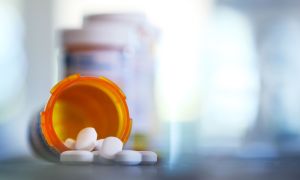Advertisement
The benefits of prescription drugs always need to be balanced with the risks of the side effects that they can cause. Nothing, even water, is completely harmless if not used correctly. Prescription drugs can cause side effects that range from minimally bothersome to life-threatening. However, today people survive infections that used to kill them and children with cancer are often cured and grow up to live normal lives. People live longer and more productive lives due in part to the benefits of prescription medications.
Continue Learning about Patient Education
Important: This content reflects information from various individuals and organizations and may offer alternative or opposing points of view. It should not be used for medical advice, diagnosis or treatment. As always, you should consult with your healthcare provider about your specific health needs.

